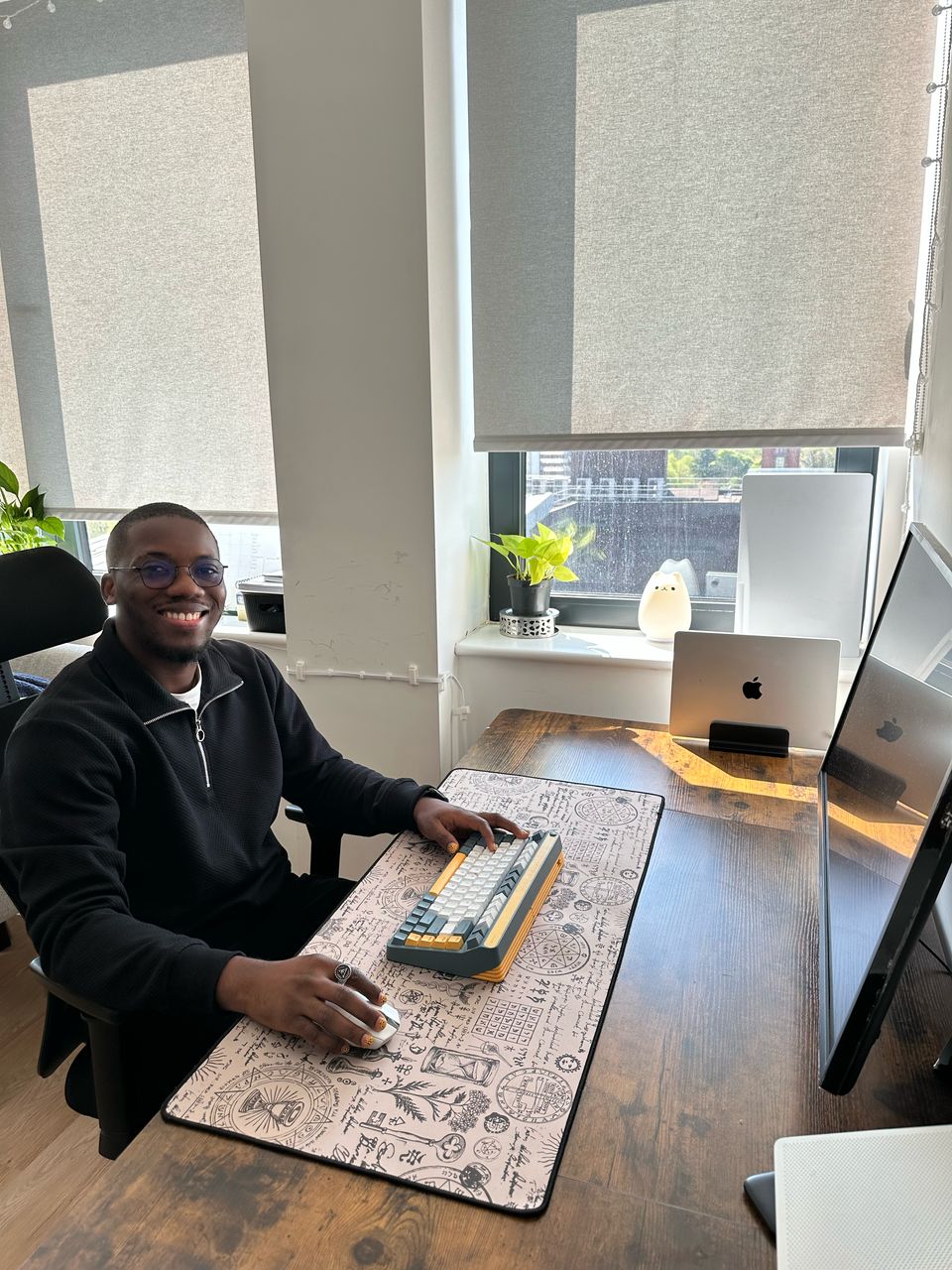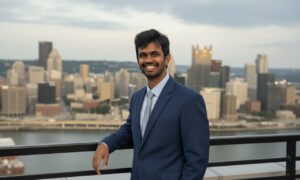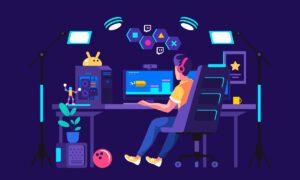In a world where technology isn’t just evolving but shaping our entire lives, the stories of those redefining this transformation are more crucial than ever.
Today, we’re honored to sit down with Mr. Bolaji Olajide, a remarkable senior software engineer whose journey embodies this very transformation. With nearly a decade of experience across innovative industries like Sourcegraph, Newstore, Pluralsight, and Andela, Bolaji isn’t just proficient in Go,Typescript, Python, and modern software frameworks like React and NodeJS, he possesses a rare understanding of the entire software development lifecycle- From the very beginning of an idea, all the way to launching and keeping things running. Join us as we discuss how his path in technology has shaped his professional journey and his personal views.
Mr. Olajide, your path into software development started in a somewhat unconventional way. What initially sparked your interest in technology and eventually led you to this field?
I’ve always been that person who asks “why does this work the way it does?”. One of the first things that fascinated me was the radio. I was quite curious about how the voices of different people could come out of this little box. At first, I imagined people somehow lived inside it, but that theory was shattered when I realized that many listeners could tune in to the same broadcast simultaneously by adjusting to the right frequency. I started taking apart my father’s radio, studying its components. and putting it back together.
This early experience of exploring how things work really set the stage for me. It sparked this deep curiosity in how technology works, and honestly, from there it naturally led me to software development.

With your deep expertise in Go, TypeScript, Python, and a broad range of modern frameworks, how do you approach choosing the optimal tech stack for a given project? Are there universal criteria, or does it always depend on the situation?
When I think about programming languages, my mind immediately jumps to something we all know about: Cooking. Think about it, every great dish needs the right blend of flavors. And the ultimate choice of flavors boils down to a bunch of other factors.
Imagine trying to cook a complex meal with four chefs who speak different languages, coordination would be a total nightmare and would prove extremely difficult. This is why in software, the team’s experience with certain tools along with its framework genuinely matter when trying to create a solution that’s not just efficient but also easy for everyone to maintain down the line.
What is your personal philosophy of software development?
When building things, I like to be really thorough. Before I write any code, I spend a good amount of time figuring out exactly what we need, what we already know and what’s still a bit unclear. Also, I ask lots of questions early on to identify potential roadblocks and find possible solutions before they become big headaches later on. This approach helps ask the right questions early, find answers and minimize risks in later stages.
Also, I put a lot of emphasis on running tests for my code. This way, I am able to fix errors fast and ensure the final product is high quality work.
How do you maintain high standards of code quality while preserving a constructive and positive atmosphere within the team?
I believe everyone’s involvement when writing high quality code is essential for its success.
For me, one of the most important indicators of a quality code is asking myself: how easy will it be to understand your own code written two years ago?
As Daniel Roy Greenfield put it, “we read code way more than we write it”. An individual block of code takes moments to write, minutes or hours to debug which is why writing a clear, simple code is super important.
Also, it is important to be respectful when giving out feedback. Agreeing on how a code should look and work stops endless arguments and helps focus on what truly matters.
Your current role at Sourcegraph involves developing and maintaining critical software components. What are your strategies for prioritizing technical tasks, especially under inevitable time and resource constraints?
When deciding on what to work on first, I always ask myself “ How big of a deal is this task, and what could go wrong” This helps me plan my approach.Then I check if anything else needs to happen before I start.
Also, keeping every team member in the loop is super important too. I communicate regularly so we’re on the same page and making progress. And to avoid delays, I always share my thoughts and what I’m doing with my teammates.
The technological landscape changes rapidly. What methods and resources do you use to stay at the forefront of software development knowledge? Are there communities or sources of information you find particularly valuable for professional growth?
I jump into online communities, and I attend conferences and workshops. For learning, my secret weapons are definitely YouTube and Udemy.
I also consume articles and blogs from industry giants like Sarah Drasner, Steve Yegge, Thorsten Ball, Kent C. Dodds. Hacker News and TechCrunch newsletter helps me stay in the loop on the latest trends.
Besides reading, I also watch a lot of Conference talks (Think of it as my VIP pass for what’s coming). Plus, I love to play around with new tech on my own just so I’m aware of what’s trending and how the digital scene is evolving.
You were invited as a judge for debates on AI and law. Please share your impressions of this experience. What aspects of the interaction between technology and the legal field do you consider most significant and requiring attention today?
This was a super insightful experience. The discussion focused on the ethical aspects of AI application in legal practice. I learned a lot about legal issues that pop up with AI generated content, especially around copyright and who’s legally responsible.
The big question is: How do we make sure AI algorithms in the legal domain are transparent, how do we prevent them from being biased in their decision-making, and what is the legal stance of all AI created products.
Over the years, you have contributed to many projects. Which of them do you consider your most significant achievement so far, and why?
Probably Annie Music. This project holds special, personal significance for me. Annie is a tool designed to simplify music sharing between people using different streaming services. Besides my main work, I spend time DJing, which means I listen to a huge ton of music and often want to share my discoveries with friends. The problem is, we use different platforms, and simply sharing a link doesn’t always work. That was the motivation behind creating Annie — it solves a concrete problem I face myself and makes music sharing seamless regardless of the recipient’s platform.
You mentioned involvement in mentoring and teaching other engineers, particularly within the Andela Learning Community. What key advice would you give to aspiring developers aiming to build a successful career in this dynamic industry?
To everyone eager to build, create and innovate with code, this field definitely rewards dedication and it’s super important to take your time with the basic concepts and truly understand them deeply. My advice? When you get stuck on a problem for a long time, the best way to solve it is to take a break and distract yourself. A fresh perspective often helps find a solution.
Most importantly, never stop learning. Technology is constantly evolving, and a willingness to learn is key to success.
To conclude our conversation, Mr. Olajide, how do you see the future of software development and technology in general? What trends do you think will be defining in the coming years?
You can bet your last dollar, AI is the big trend right now and it is definitely going to change our daily lives in a surreal way. Imagine AI helping us make smarter decisions in situations where we struggled? That’ll be a game changer.
AI will also revolutionize education, making it way easier for everyone to learn new skills. It will bring a wave of new tools, ideas, and concepts generally aimed at making our lives better. Get ready, because we’re stepping into a time where technology is turning impossible ideas into realities.


































